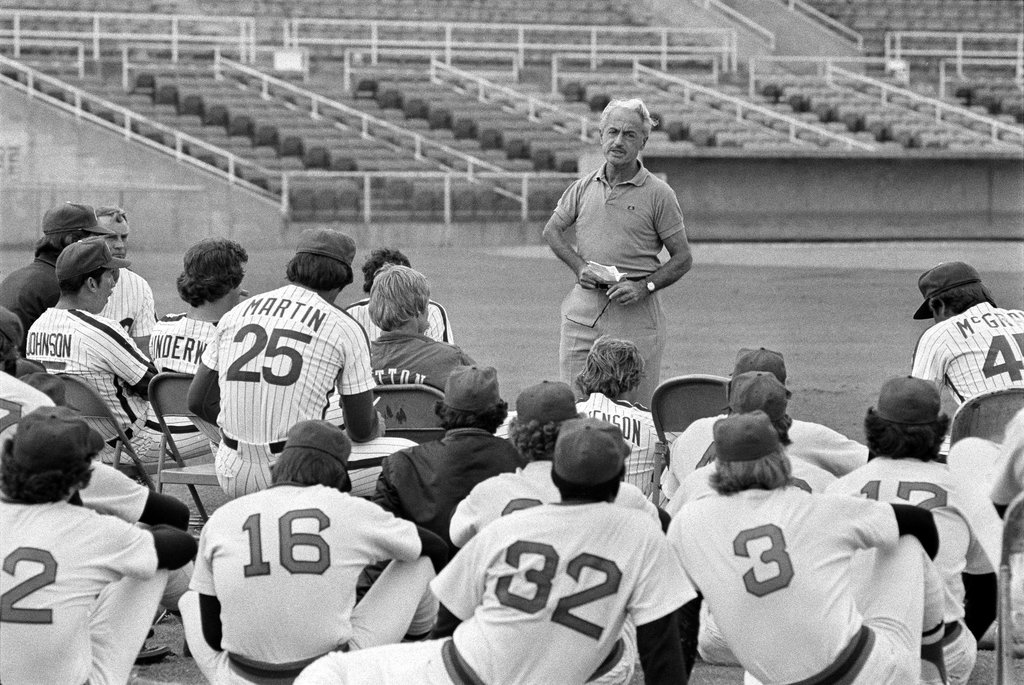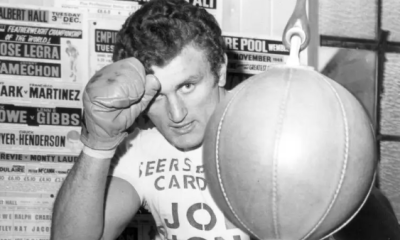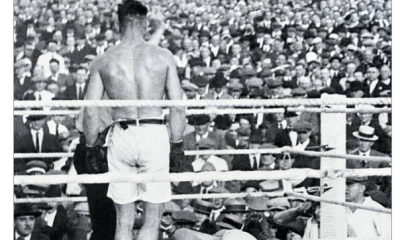Featured Articles
Retirement Benefits for ex-Boxers: It’s Past Time to make it Happen

Professional basketball players, baseball players, football players, hockey players, and even soccer players all have negotiated benefit packages including important pension features. Because of their team structure, these sports were readily unionized when that option became viable. In fact, during Marvin Miller’s tenure as the Executive Director of the Major League Baseball Players Association (1966 to 1982) the baseball union became one of the very strongest in the labor movement. Creighton Miller paved the way in football.
They made it happen. And the athletes they represented wisely paid heed to what the prominent American labor leader Cesar Chavez once said, to wit: “You are never strong enough that you don’t need help.”
Boxing
The uniqueness of boxing and its lack of structure impedes reform and, incidentally, makes unionization a virtual impossibility (though Eddie Mustafa Muhammad, the late Johnny Lira, and others have tried). Moreover, the business of boxing has never been known for its ethics and responsiveness to the need of the boxers, especially in the area of benefits.
“The biggest crime in boxing has always been that nobody gives a fighter a thought. It’s all greed and how much they can squeeze out of the fighter.”—Ray Arcel
Boxing writer Caryn Tate recently stated the issue as follows:
“One of the most overlooked difficulties in the sport of boxing is that the fighters are on their own when it comes to career choices. The sport has never had a union for its athletes, nor any sort of national oversight committee to look out for the boxers’ best interests. It all comes down to the team a fighter selects to sign contracts with, the promoters and managers who handle most of the business side of things for the athletes. Some are honest and look out for their fighters; but it’s not uncommon for many to take advantage of the athlete who may not have the business education to know what red flags to avoid ahead of time.”
The sad fact is that few fighters leave on their own terms unless have risen to the tip of the boxing iceberg. And, even then, unless they are smart enough to get the right financial advice, retirement benefits may be hard to come by. Hell, how do you spell “annuity”?
Reputedly ex-boxer and current trainer Mark Breland knew how. Here’s a snippet from an article about Breland that appeared in the September 27, 2009 online edition of the New York Daily News (no byline):
“[Mark] Breland is one of the few fighters who knew when to quit and who got the most out of a successful boxing career. He has his wits about him, no worries about money and is still on the threshold of new horizons… He was well-guided by some fine fight people, such as Shelly Finkel and the late Ray Arcel. Compare Breland’s after-fight life with those of Willie Pep and Sandy Sadler and you get a totally different picture.”
With appropriate expertise and financial assistance — with a focus on diligence, annuitization, and fund management — how difficult can it be to set up a plan similar to a 401(k) in which a small percentage of each purchased ticket (including PPV) is transferred into a central fund and matched in some equitable manner? Translating the concept (or something similar) to reality is long overdue, and each day that boxers go without such needed assistance is a day that a boxer leaves the sport with less than he or she came in with.
Of course, there are other important variables that come into play such as the Professional Boxing Safety Act of 1996, the Muhammad Ali Boxing Reform Act, the Professional Boxing Amendments Act of 2003, and, of course, the possibility of a national boxing commission, but these should not become red herrings that impede the need for a pension plan; they should become enablers to help make it happen.
The need to establish and enforce standards and uniformity has been discussed seemingly forever, but red herrings like “I am not for government control” continue to obstruct. The fact is, boxing DOES NEED government control! And the more we deny it based on convenient and/or manufactured philosophical arguments, the longer the problem will persist. Also impeding progress are the many political appointees (aka hacks) who often make up part of state boxing commissions.
There is, however, one state boxing commission that has been in the forefront of providing benefits to former boxers. In my next article, we’ll delve into this agency’s plan for assisting ex-boxers, a plan that unfortunately needs major improvements.
Ted Sares is one of the world’s oldest active power lifters and Strongman competitors and plans to compete in at least three events in 2019. He is a lifetime member of Ring 10, and a member of Ring 4 and its Boxing Hall of Fame. He also is an Auxiliary Member of the Boxing Writers Association of America (BWAA).
Check out more boxing news on video at The Boxing Channel
To comment on this article in The Fight Forum CLICK HERE
-

 Book Review4 weeks ago
Book Review4 weeks agoMark Kriegel’s New Book About Mike Tyson is a Must-Read
-

 Featured Articles2 weeks ago
Featured Articles2 weeks agoThe Hauser Report: Debunking Two Myths and Other Notes
-

 Featured Articles3 weeks ago
Featured Articles3 weeks agoMoses Itauma Continues his Rapid Rise; Steamrolls Dillian Whyte in Riyadh
-

 Featured Articles2 weeks ago
Featured Articles2 weeks agoNikita Tszyu and Australia’s Short-Lived Boxing Renaissance
-

 Featured Articles4 weeks ago
Featured Articles4 weeks agoKotari and Urakawa – Two Fatalities on the Same Card in Japan: Boxing’s Darkest Day
-

 Featured Articles3 weeks ago
Featured Articles3 weeks agoIs Moses Itauma the Next Mike Tyson?
-

 Featured Articles4 weeks ago
Featured Articles4 weeks agoRamirez and Cuello Score KOs in Libya; Fonseca Upsets Oumiha
-

 Featured Articles2 weeks ago
Featured Articles2 weeks agoBoxing Odds and Ends: Paul vs ‘Tank,’ Big Trouble for Marselles Brown and More




















